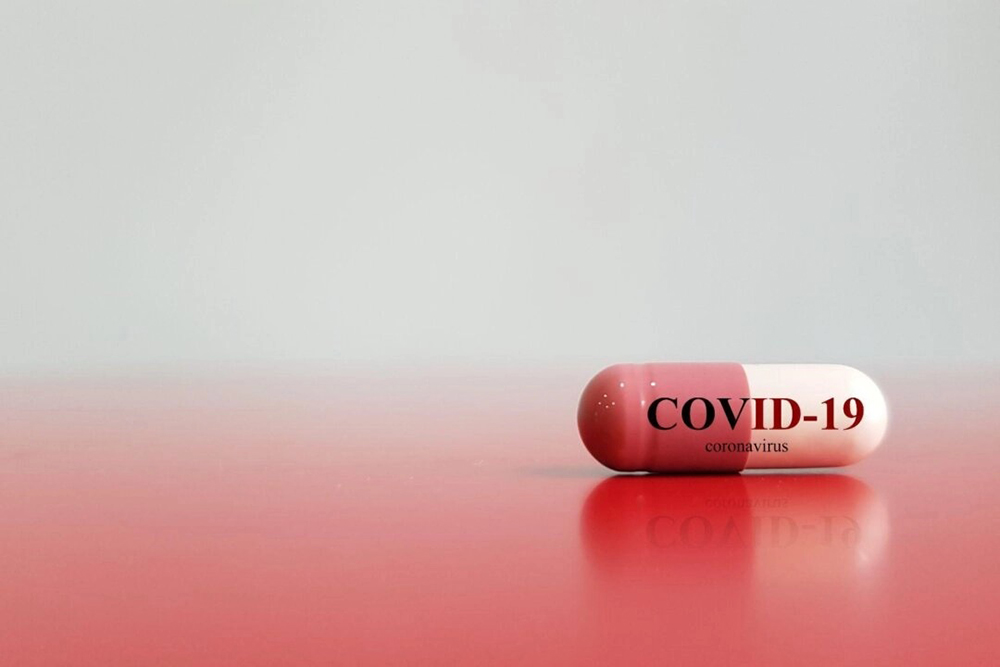|
Getting your Trinity Audio player ready...
|
By: Ellen Wan
Studying the ways viruses impact cellular pathways during infection may help in developing treatments for infectious diseases such as COVID-19.
A new study, conducted by researchers at the University of Alberta and published in the npj Viruses journal found that certain cancer treatment drugs can promote cells to secrete antiviral interferons. These drugs target the SARS-CoV-2 virus, which causes COVID-19, and are also effective against multiple pathogenic RNA viruses.
Interferons are natural proteins that bolster the body’s immune system in combating infections and diseases like cancer. They earned their name because they interfere with viruses, stopping them from spreading.
Both COVID-19 and some cancers activate the Wnt/β-catenin pathway—a chain reaction inside the cell. Drugs that block this pathway, originally made to treat cancer, might also help fight COVID-19.
When the Wnt/β-catenin pathway gets activated, it slows down the production of interferons. This pathway also negatively impacts the immune system.
In a study, scientists tested two drugs, KYA1797K and E7449, that block the Wnt/β-catenin pathway. They found that these drugs reduced the amount of virus in the lungs of mice. The drug E7449 was especially good at preventing weight loss and lung damage in the infected mice.
Tom Hobman, a professor of cell biology at the University of Alberta’s Faculty of Medicine and Dentistry and one of the study authors, explained in a press release that after using these drugs, cells produced interferons in response to viral infections at levels four to six times higher than before. Additionally, experiments also revealed that the virus was inactivated to less than one-ten-thousandth of its original levels.
He pointed out that interferons prevent infected cells from producing more viruses primarily in two ways, “It shuts down the infected cell, often resulting in cell death, and it also acts on the surrounding cells to prevent them from being infected.”
The researchers also tested viruses other than COVID-19 and found that the drugs exhibit broad-spectrum activity against a variety of RNA viruses. These include coronaviruses, responsible for seasonal respiratory infections, as well as mosquito-borne viruses like Zika and Mayaro.
Natural Compounds With Antiviral Activity
In addition to drugs under development, some common plants and natural compounds also possess potent antiviral activity.
- Iota-carrageenan
Iota-carrageenan is a polysaccharide extracted from red algae, commonly used as a thickener in puddings or ice creams. A study in Argentina involving 400 hospital workers indicated that a nasal spray containing iota-carrageenan could reduce the risk of contracting COVID-19 by around 80 percent.
- Curcumin
A clinical trial published in the journal Nutrients in 2022 found that curcumin supplementation can effectively improve symptoms such as coughing, difficulty breathing, and muscle soreness in patients with mild to severe COVID-19. Furthermore, compared to the control group, oxygen saturation was significantly higher in the treatment group.
- Platycodon grandiflorum
A study proposed that platycodin D, a compound in Platycodon grandiflorum, is a potent natural product for preventing and treating COVID-19. The study found that Platycodon grandiflorum “effectively blocks” the entry of the COVID-19 virus into cells by altering the distribution of membrane cholesterol.
- Reishi, Perilla, and Peppermint
Cell and animal experiments have demonstrated that extracts of Reishi mushroom, Perrila, and Chinese mint exhibit efficacy in inhibiting the COVID-19 virus. A particular compound in Reishi mushroom, Ganoderma lucidum, retains its antiviral effect even when diluted 1,280 times, with no cellular damage.
- Green Tea and Black Tea
Tea polyphenols in green tea and black tea also have broad-spectrum antiviral effects. Animal experiments have found that catechins can inhibit coronavirus replication, enhance immunity, and improve acute lung injury. There are also studies indicating that tea catechins and catechin derivatives have the ability to effectively inactivate omicron subvariants.





